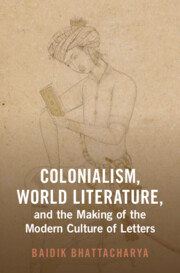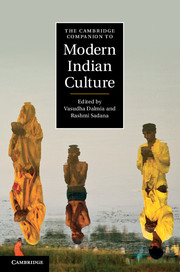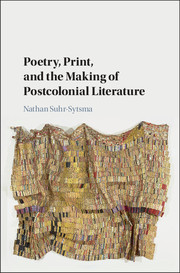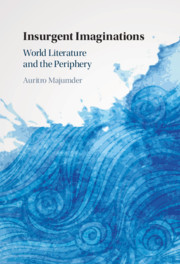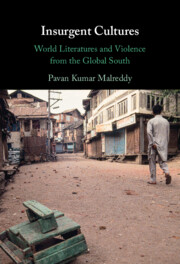Colonialism, World Literature, and the Making of the Modern Culture of Letters
In a radical and ambitious reconceptualization of the field, this book argues that global literary culture since the eighteenth century was fundamentally shaped by colonial histories. It offers a comprehensive account of the colonial inception of the literary sovereign – how the realm of literature was thought to be separate from history and politics – and then follows that narrative through a wide array of different cultures, multilingual archives, and geographical locations. Providing close studies of colonial archives, German philosophy of aesthetics, French realist novels, and English literary history, this book shows how colonialism shaped and reshaped modern literary cultures in decisive ways. It breaks fresh ground across disciplines such as literary studies, anthropology, history, and philosophy, and invites one to rethink the history of literature in a new light.
- Provides in-depth accounts of postcolonialism and world literature studies
- Introduces the idea of decolonization as a central rubric
- Offers a rethinking of literary studies
Reviews & endorsements
‘In this magisterial book, Baidik Bhattacharya develops a surprising thesis: that the modern conception of literature as an autonomous, self-directed cultural form was the product of a highly political process – the efforts of colonial British administrators to extend their sway in India and beyond. This is a compelling, revisionary genealogy of the contemporary idea of culture, and a major contribution to debates on the intertwined origins of world literature and modern empire.’ David Damrosch, Ernest Bernbaum Professor of Comparative Literature, Harvard University
‘Baidik Bhattacharya’s erudition in the fields of Indian and British literary history and his transdisciplinary approach to ‘lettered sovereignty’ as a catalyst of colonial modernity give us a fresh perspective on what Pascale Casanova famously dubbed the ‘world republic of letters.’ Philological legacies; questions of race, language, and translation; the formation and deformation of epistemic habits crucial to narratives of empire; comparatism in the colony (including the complex reception of European philosophies of aesthetic judgment and nationalist imagination within Indian education) – all receive fine-grained analysis, making Colonialism, World Literature, and the Making of the Modern Culture of Letters essential reading for scholars, critics, historians, and theorists committed to rethinking the postcolonial public sphere in the contemporary humanities.’ Emily Apter, Julius Silver Professor of French and Comparative Literature at New York University, and author of Against World Literature: On the Politics of Untranslatability
‘Recommended.’ L. A. Brewer, CHOICE
Product details
April 2024Hardback
9781009422642
302 pages
235 × 160 × 20 mm
0.56kg
Available
Table of Contents
- Preface and acknowledgement
- Introduction: formations of the literary sovereign
- Part I. Epistemic Habits:
- 1. Ethnographic recension
- 2. Colonial untranslatables
- 3. Comparatism in the colony
- Part II. Aesthetic Conventions:
- 4. Impure aesthetics
- 5. Sanskrit on shagreen
- 6. National enframing
- Coda: Decolonization after world literature
- Notes
- Bibliography
- Index.

